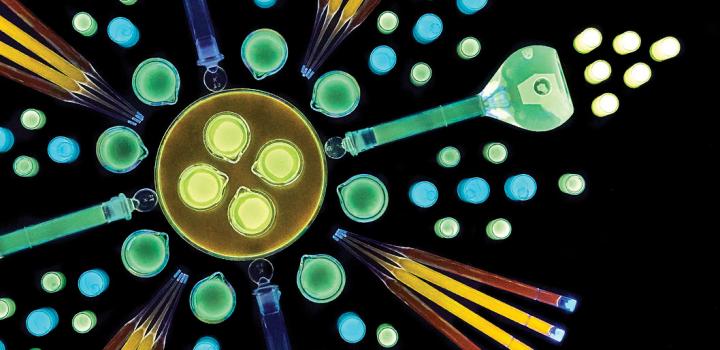Creating Q-Dots/ QDs (Acronym seems to depend on which reference book, article that you read) more cheaply and efficiently too.
Quantum dots (QDs) are semiconducting nanocrystals prized for their optical and electronic properties. The brilliant, pure colors produced by QDs when stimulated with ultraviolet light are ideal for use in flat screen displays, medical imaging devices, solar panels and LEDs. One obstacle to mass production and widespread use of these wonder particles is the difficulty and expense associated with current chemical manufacturing methods that often requiring heat, high pressure and toxic solvents.
But now three Lehigh University engineers have successfully demonstrated the first precisely controlled, biological way to manufacture quantum dots using a single-enzyme, paving the way for a significantly quicker, cheaper and greener production method. Their work was recently featured in an article in The New York Times called “A curious tale of quantum dots.”
The Lehigh team— Bryan Berger, Class of 1961 Associate Professor, Chemical and Biomolecular Engineering; Chris Kiely, Harold B. Chambers Senior Professor, Materials Science and Engineering and Steven McIntosh, Class of 1961 Associate Professor, Chemical and Biomolecular Engineering, along with Ph.D. candidate Li Lu and undergraduate Robert Dunleavy—have detailed their findings in an article called “Single Enzyme Biomineralization of Cadmium Sulfide Nanocrystals with Controlled Optical Properties” published in the Proceedings of the National Academy of Sciences (PNAS).
